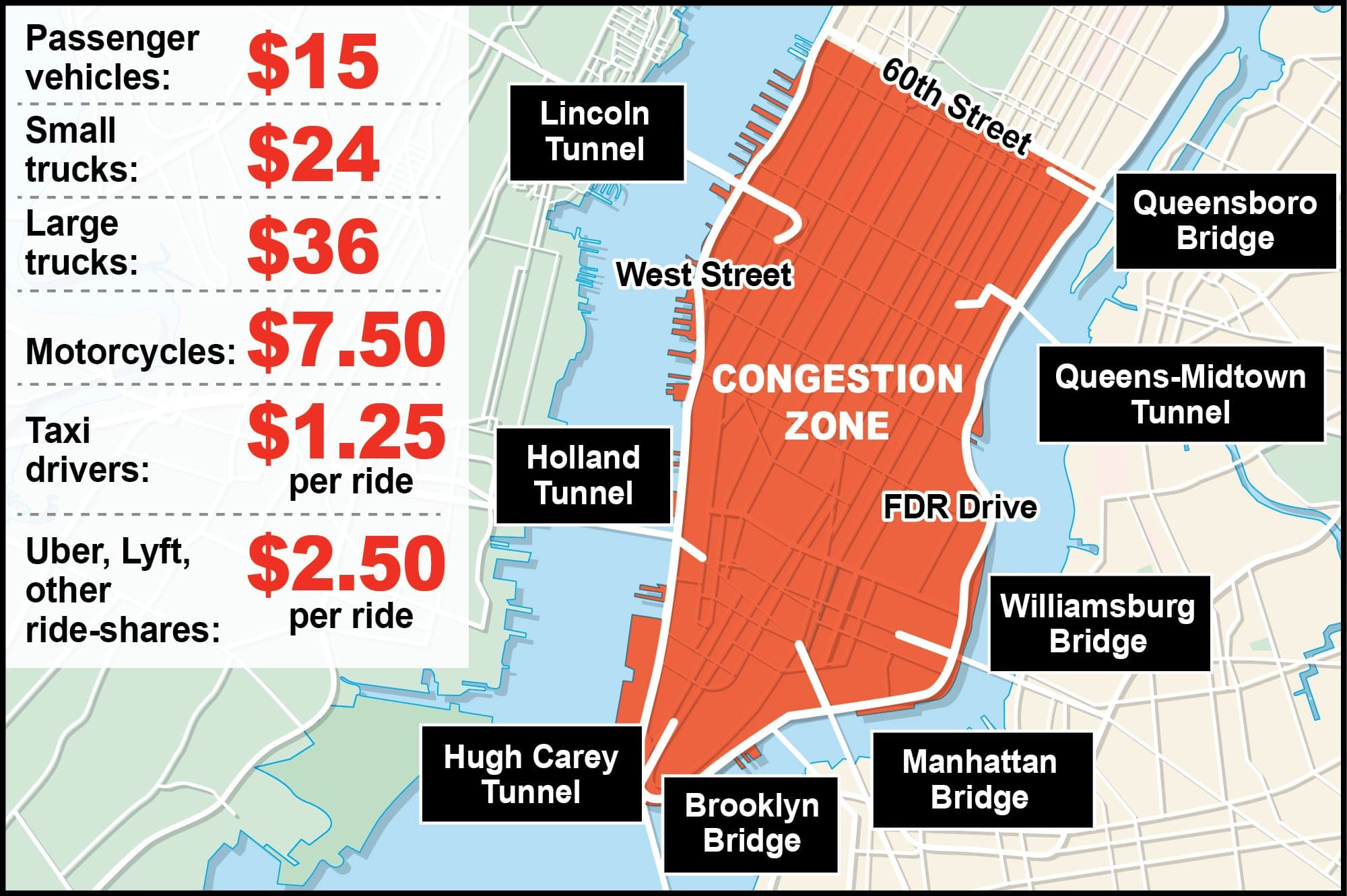Holland Tunnel Rush Hour Delays Drop by 65% Following Congestion Pricing Implementation

New York City's congestion pricing program, implemented on January 5, 2025, has significantly reduced rush hour delays in the Holland Tunnel by 65%, according to data released by the Metropolitan Transportation Authority (MTA) and the Regional Plan Association (RPA). This figure closely aligns with claims made on social media regarding the program's impact on traffic flow.
The Holland Tunnel's improved travel times are part of broader traffic reductions observed across Manhattan's Congestion Relief Zone (CRZ) and surrounding areas. The MTA reports an 11% decrease in vehicles entering the CRZ daily, totaling over 10 million fewer vehicles since the program began. Overall traffic delays in the CRZ are down by 25%, with regional delays decreasing by 9%.
The congestion pricing initiative charges motorists to enter Manhattan south of 60th Street, aiming to reduce gridlock and generate revenue for public transit. The program is projected to raise $500 million in 2025, earmarked to fund $15 billion in critical capital improvements for the MTA's subway, bus, and commuter rail systems. Governor Kathy Hochul stated, "Six months in, it's clear: congestion pricing has been a huge success, making life in New York better."
Despite these reported benefits, the program faces criticism, particularly concerning the MTA's financial management. Social media user Reza Chowdhury, in a recent tweet, questioned the reported delay reductions and characterized congestion pricing as "tyrannical taxation," alleging that funds would be "handed over to the corrupt, inefficient, ineffective, and mismanaged MTA to borrow more toxic and unsustainable debt."
Concerns about MTA's fiscal health and project oversight are not new. Reports from the New York State Comptroller's office and various news outlets have highlighted historical issues with ballooning project costs, significant debt, and criticisms of administrative inefficiencies. MTA Chair and CEO Janno Lieber has defended the agency, acknowledging past challenges but emphasizing recent strides in reliability and ridership, while dismissing some critiques as "grievance politics." State Senator Dean Murray recently announced plans for legislation to create a Financial Control Board for the MTA, citing "mismanagement, fraud, waste, and safety concerns."
The debate continues between officials touting the program's success in traffic reduction and transit funding, and critics who question the long-term financial implications and the MTA's capacity for responsible stewardship of the new revenue.